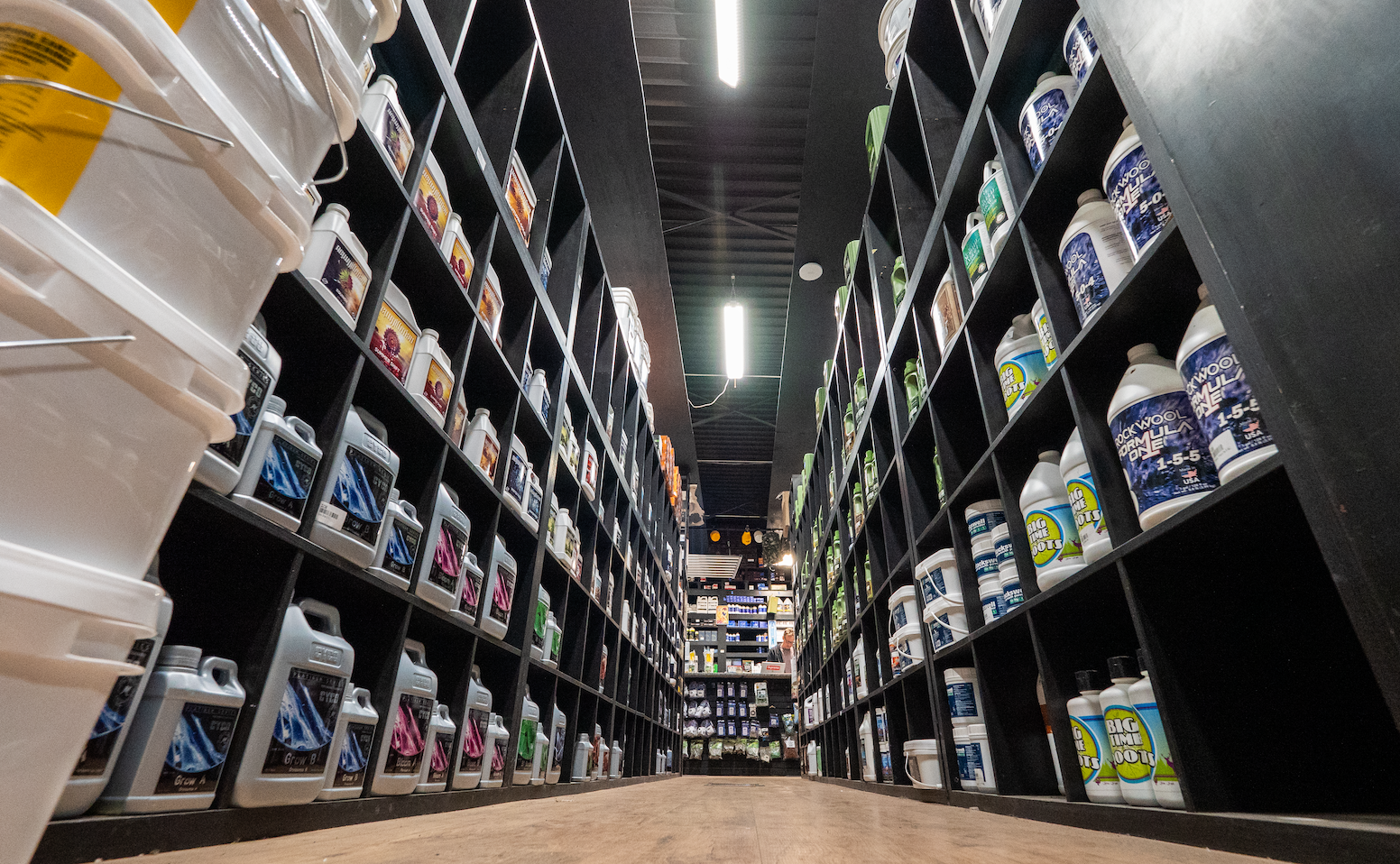
Courtesy of GrowGeneration

Audio By Carbonatix
During the pandemic, more and more gardeners have been turning to indoor horticulture – and while some are actually growing tomatoes, cannabis is largely responsible for all of those growing lights and nutrients flying off the shelves.
Buying the wrong equipment and plant food can be a costly mistake for amateurs, though. With more than fifty stores across eleven states, including eight in the company’s home base of Colorado, GrowGeneration president Michael Salaman knows what the real green thumbs need, whether they run a commercial operation or just a basement grow.
We caught up with Salaman to learn more about where growers spend too much money, how to cut their carbon footprints and more.
Westword: How much have cannabis growing equipment and nutrients changed since 2012, when Colorado legalized recreational cannabis?
Michael Salaman: Technology is always progressing in this industry, but over the last decade, we’ve witnessed a true renaissance in the lighting game. LEDs have become increasingly user-friendly and consume significantly less energy compared to traditional lighting forms like metal halide and high-pressure sodium fixtures. In most states, there are excellent rebate programs available to commercial operators for making the switch to LEDs.
On the nutrient front, the biggest change we’ve seen is the implementation of large-scale fertigation systems, optimized for use with dry fertilizer regiments as opposed to the traditional liquid nutrient solutions of yesteryear. In general, cannabis cultivators are optimizing their fertilizer regiments and adopting models increasingly similar to those used by the big-ag community.
Outside of nutrients, are we seeing hydroponics and ag companies make products specifically for cannabis now? Or are growers of indoor tomatoes and cannabis largely using the same items?
We’re seeing hydroponics and ag companies pivot to making products specifically for cannabis. There are countless new products rolling out – hardware applications, harvesting equipment, new additives – geared specifically to the cannabis grower. At present, cannabis cultivation equipment is evolving far faster than just about any other sector of agriculture.
In which cities or states are you seeing a rise in cannabis home-growing interest over the past couple of years? Does that coincide with legalization efforts at all?
We’ve seen home-grow interest in all states. Activists, lobbyists and the general public have always been in support of the right to do so, which is fundamentally an equity and affordability issue – especially for patients who rely on cannabis, which is not traditionally covered by health insurance. GrowGeneration supports open licensing and the right to home-grow for all. We’re proud to serve home growers, and believe that access to capital should not impact one’s right to grow cannabis and take ownership of their own health. But home-grow laws and legalization efforts have an interesting relationship.
Unfortunately, in the early days of legalization, state governments like to exert as much control over cannabis regulations as they can. Home-grow activity is hard for regulatory bodies to track, so they tend to leave it out of initial implementation legislation until their cannabis programs age and they feel more comfortable with legalization in their state. Luckily, we’re already seeing changes to this pattern. We just saw New York implement home-grow as part of their initial adult-use program. New Jersey only legalized months ago and already has home-grow bills in progress. So interest in home growing has always existed, [but] only now are legislative bodies catching up to demand.
If you could pick only one, what piece of cannabis growing equipment is worth spending the extra money on?
Genetics. Investing in gene tech can yield more value than any single piece of growing equipment.
What do you see new or novice cannabis growers spending too much money or effort on?
Novice growers often over-complicate their growing setup. The truth is that commercial cultivation and home growing are completely different animals, and don’t require the same complex approaches. More specifically, novice growers often spend too much money on nutrients in fancy packages and too little time in the garden. Learn your crop, dial it in, and keep it simple. Home growing can be inexpensive with great results.
Sustainability is a hot topic among commercial cannabis growers. Are you seeing the same interest among home growers? What are some ways a home grower can make a basement operation more eco-friendly?
Sustainability is a value that has quite literally changed the way consumers shop across all industries, and cannabis is no exception. We’ve seen that home growers are absolutely interested in sustainable practices, but many don’t know how, exactly, to implement them in their own basements. That’s where GrowGen comes in. Home growers can easily make their small basement operations more eco-friendly by switching HID to LED or HID to CMH; switching growing medium, [like] Rockwool to coco coir or other reusable media; switching fertilizer, such as synthetic- or salt-based to organic or true-living soil; making precise calculations for lighting and water use; picking the most productive genetics for your personal needs; and minimizing pesticide usage through good husbandry practices.
Running a completely sustainable grow-op requires a comprehensive understanding of soil biology and the critical relationships that exist between plant roots, soil bacteria and mycorrhizal fungi. It’s truly an art. Fortunately, we have a team of over 600 talented grow pros who are well versed in the art and keen to dispense their knowledge to anyone who walks into our stores.